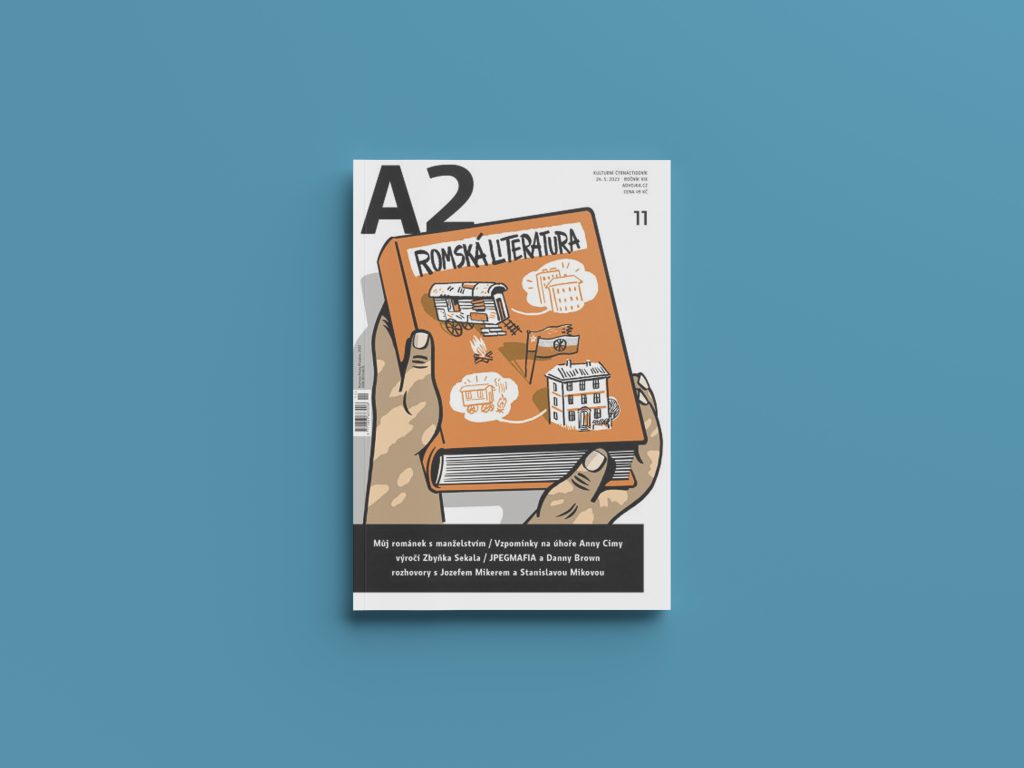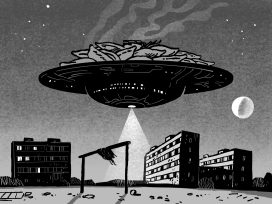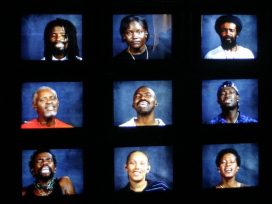A2 devotes an issue to writing by Czech Roma authors, featuring samples from their works, reviews and interviews. Saša Uhlová provides a short history of the oppression and forced assimilation the Roma have suffered from 1918 up to the present, in Czechoslovakia and, later, the Czech Republic, while another Romani expert, Karolína Ryvolová, talks to writer Stanislava Miková about the current state of Roma writing.
Miková, who writes in Romani and has her works translated into Czech, represents the new generation of Roma writers who have recently come to prominence with works that move away from the tradition based on oral storytelling. That tradition is nevertheless still very much in evidence in several books published by KHER – a not-for-profit publisher fostering young talent and specialising in Romani literature written in Czech and Slovak, as well as in Romani.

Literary autobiography
Two books on KHER’s list are reviewed in this issue of A2: the cross-generational collection Všude samá krása (Beauty All Around) offers a slightly rose-tinted view of the past, whereas Velvet Blues, presents stories by younger writers that reflect the racism and disillusionment among the Roma community in the wake of the Velvet Revolution of 1989, while being stylistically still steeped in the oral history tradition.
Patrik Banga, one of the authors featured in Velvet Blues, is the first Roma writer to garner a major literary prize for his autobiographical novel The Real Way Out. The winner of the 2023 Magnesia Litera Prize for Debut of the Year, the book depicts the harsh reality of growing up in a Roma community in Prague in the 1990s. While acknowledging the power of Banga’s portrayal, reviewer Valentýna Žišková is less convinced by its authenticity and finds that as the book progresses, the writing becomes clichéd.
‘If the author’s intention is to bear witness to the racism in Czech society in the 1990s, the book has achieved its goal. Yet this is a task from which Banga has distanced himself, declaring in several interviews that he wants to be seen simply as a writer, rather than a Roma writer. That suggests that the book also had purely literary ambitions. However, the author has not managed to live up to these.’
Mainstreaming and language
‘Are the Roma going through a national renaissance, or the final phase of assimilation?’ asks Banga’s near-contemporary Mária Siváková. She is keen to challenge the taboos that are still prevalent within the community, such as openly writing about the problem of drug addiction, or the discussion of sexuality by women, or making forays into genre literature.
As Siváková embarks on her first sci-fi novel, she admits that she feels guilty about writing in Czech in the hope of reaching a wider audience. She notes that the stereotypical image of the Roma as a nomadic people who sit around the bonfire telling stories, singing and dancing is far removed from the life of the younger generation of readers, many of whom are no longer even fluent in the Romani language.
‘My writing has undoubtedly been influenced by the majority culture as well as by the Roma oral tradition, but what has played a much more important role is my desire to demonstrate that the Roma are not just the problematic fellow citizens familiar from our TV screen.’







